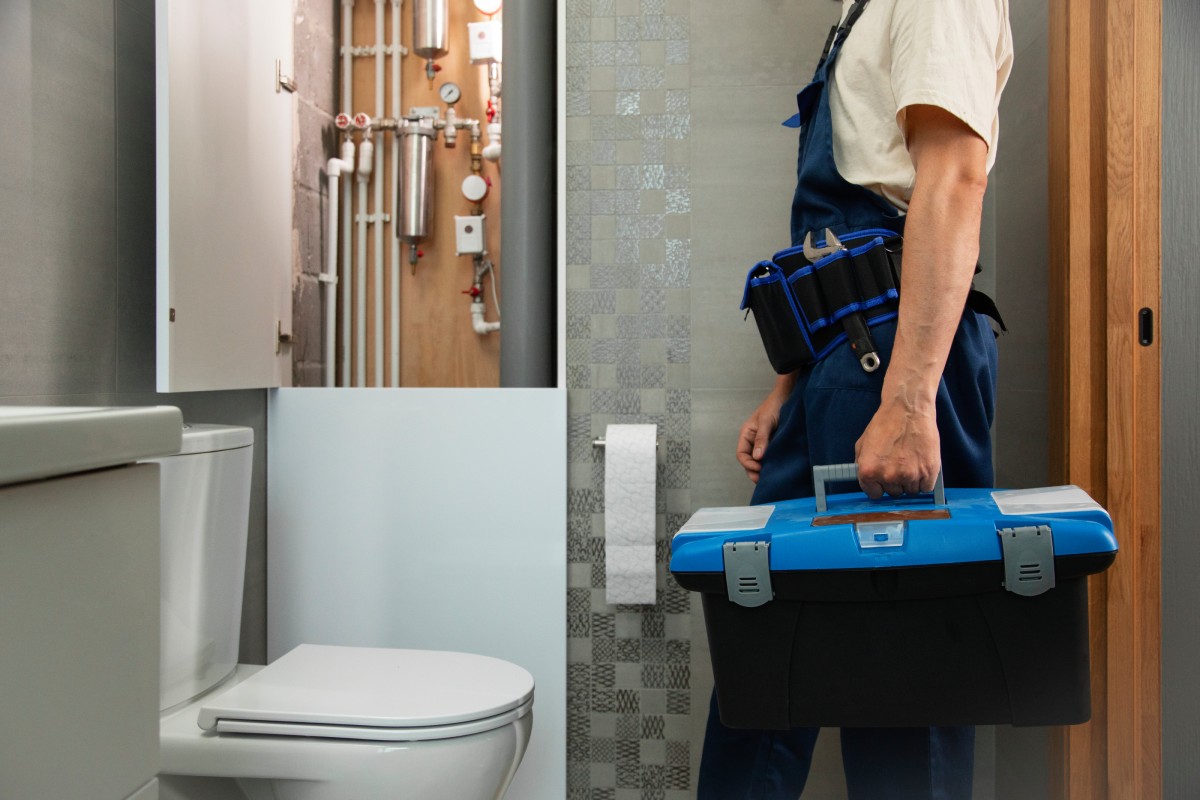
What to Do If Your Toilet Overflows: A Step-by-Step Guide

A toilet overflow can turn into a messy and stressful situation in seconds, bringing water damage, foul odours, and health risks. Don’t panic. Below, we will walk you through exactly what to do if your toilet overflows, with simple steps to control the mess and prevent further issues.
Why Is My Toilet Overflowing?
Understanding why your toilet is overflowing is the first step to fixing it. In most cases, a toilet overflow happens due to blockages in the pipes, a full septic tank, or a faulty float mechanism in the cistern. When waste or paper clogs the line, water has nowhere to go and rises up, causing a toilet bowl overflow. If left unchecked, this can lead to costly repairs and hygiene problems, so it’s super important to act fast.
Step-by-Step: How to Fix a Toilet from Overflowing
Here’s the process for how to fix a toilet from overflowing, both quickly and safely:
- Turn off the water supply: Find the shut-off valve, usually located on the wall behind the toilet. Turn it clockwise to stop more water from entering the tank and bowl.
- Remove excess water: Use towels, a wet/dry vacuum, or a mop and bucket to soak up water from the floor. This prevents damage and slip hazards.
- Use a plunger or toilet auger: A plunger can often dislodge minor blockages. For tougher clogs, a toilet auger (a flexible plumbing tool) is more effective.
- Wait before flushing again: Give it some time to see if the blockage clears. Flushing too soon can worsen the toilet overflow and cause water to spill again.
Remember: Knowing how to fix an overflowing toilet is crucial, but if these steps don’t resolve the issue, call in a pro to do the job correctly—and safely.
What Not to Do During a Toilet Overflow
Avoid these common mistakes during a toilet overflow:
- Don’t flush repeatedly: This will likely cause more toilet bowl overflow.
- Don’t ignore foul odours: Smells could indicate a sewer line issue.
- Avoid chemical drain cleaners: These can damage pipes and worsen clogs.
When in doubt, it’s always safer to wait and get professional help.
When to Call a Professional Plumber
If your toilet continues to overflow after basic troubleshooting, or if you notice water leaking from the base or strange gurgling sounds in other drains, it may signal a deeper plumbing issue. Repeated overflows often mean a blocked sewer line or a damaged drainage system.
Prowater Plumbing offers fast, professional help when you need it most. From emergency situations to recurring issues, our licensed team will find the source and fix your overflowing toilet for good. So what are you waiting for? Book a plumber with Prowater Plumbing now.
Preventing Future Toilet Overflows
To prevent toilet overflow in the future, follow these easy tips:
- Never flush wipes, nappies, or sanitary products
- Monitor the water level in the cistern
- Get regular plumbing inspections to catch issues early
A few small habits can go a long way toward avoiding a toilet bowl overflow down the track.
